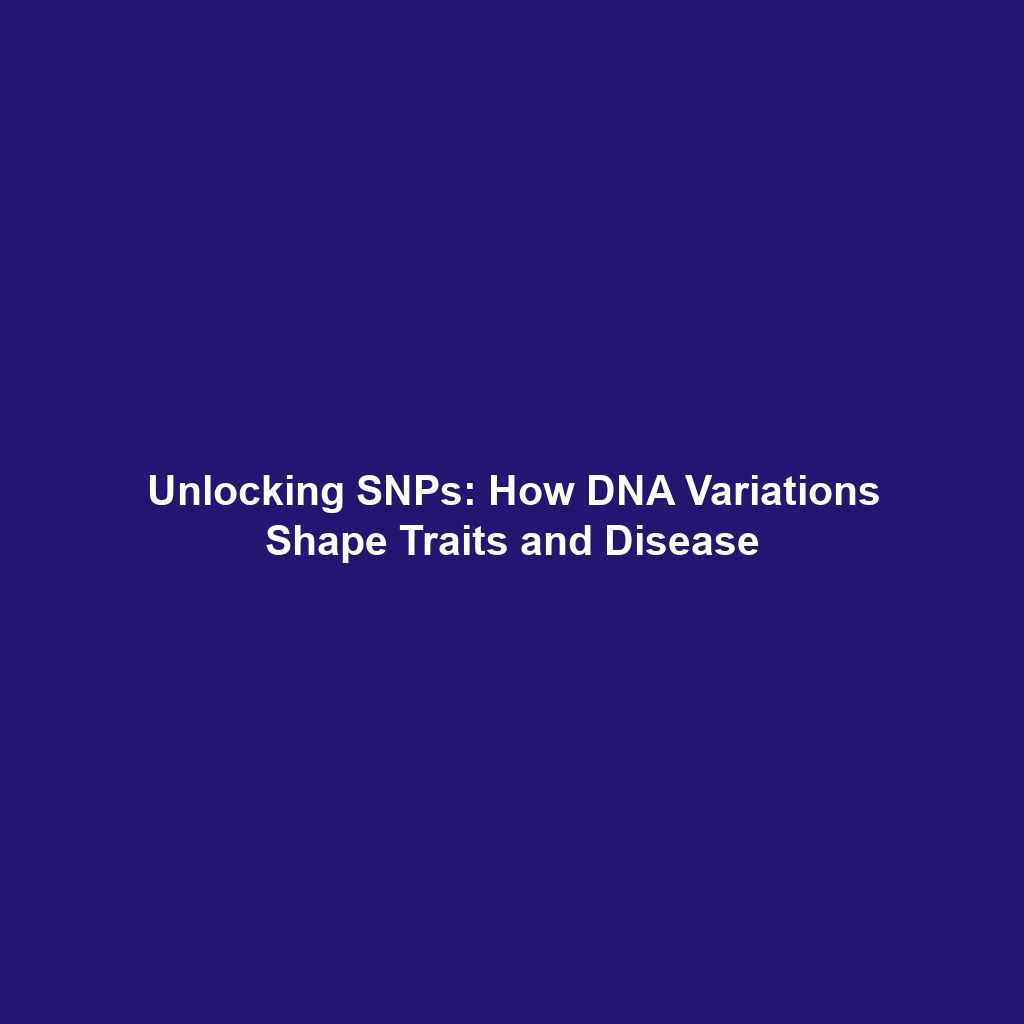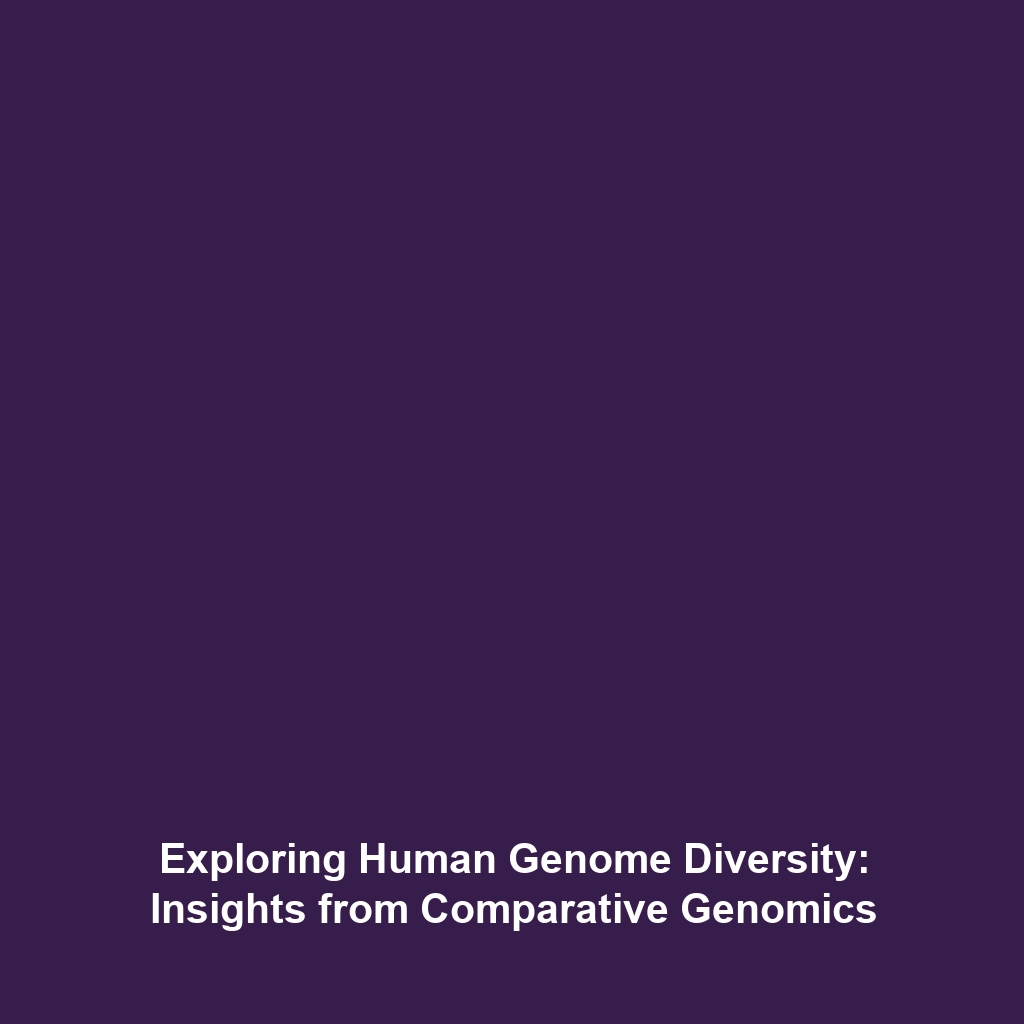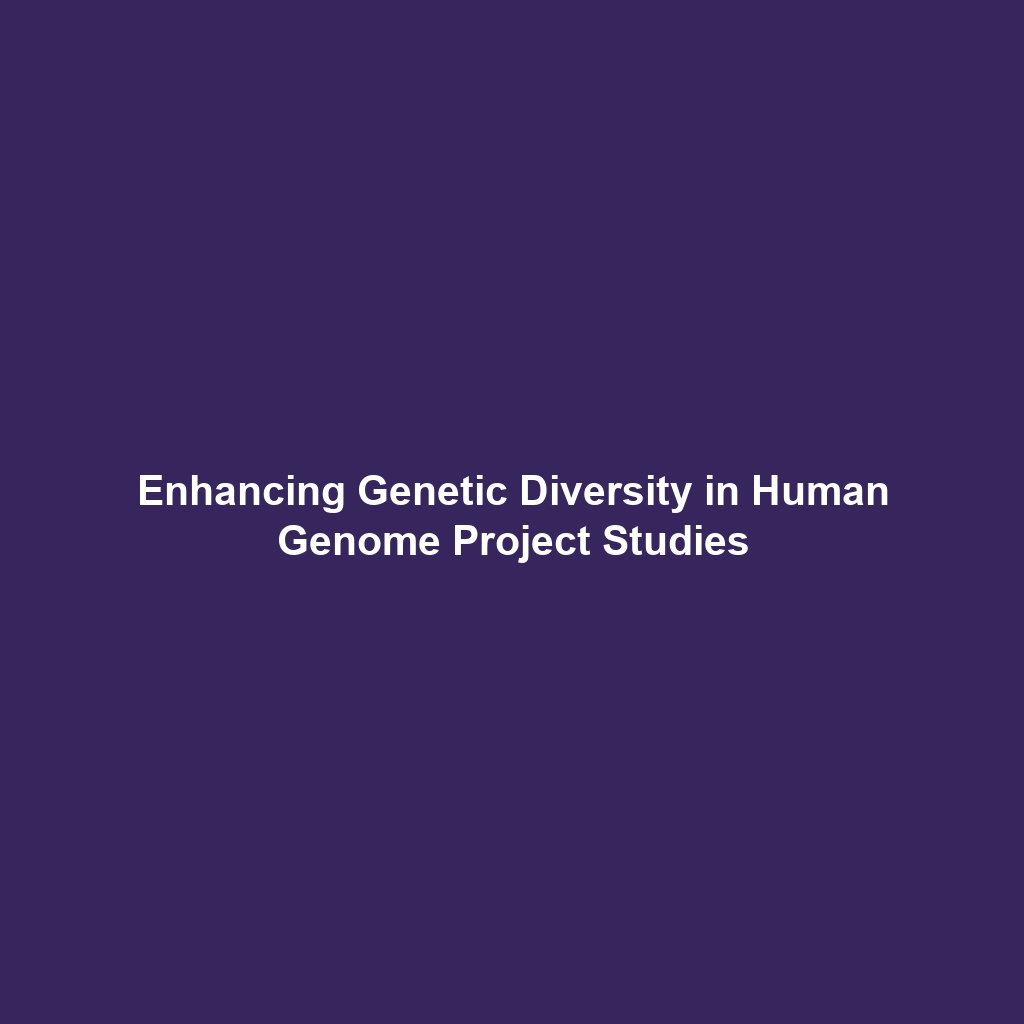The Identification of Single Nucleotide Polymorphisms (SNPs) and Their Relevance to the Human Genome Project
Introduction
The identification of Single Nucleotide Polymorphisms (SNPs) represents a pivotal advancement in genetic research that has emerged from the landmark Human Genome Project. SNPs are variations in a single DNA base pair that can significantly influence individual traits and susceptibility to various diseases. Understanding these genetic variations is crucial for personalized medicine, as they allow researchers to link specific SNPs to health outcomes, paving the way for tailored treatment strategies. This article delves into the significance of SNP identification, illustrating its vital role in the expansive framework of the Human Genome Project and the impact it has on genomics today.
Key Concepts
What are Single Nucleotide Polymorphisms (SNPs)?
SNPs are the most common type of genetic variation among people, arising from a change in a single nucleotide base—adenine (A), cytosine (C), guanine (G), or thymine (T). These variations can occur in both coding and non-coding regions of the genome and are critical for understanding genetic predispositions to diseases. The significance of SNPs is particularly pronounced within the context of the Human Genome Project, which has provided a comprehensive map of the human genome, allowing for the exploration of these genetic variations.
Linking SNPs to Traits and Diseases
Research has confirmed that certain SNPs are associated with specific traits and diseases, such as diabetes, heart disease, and various forms of cancer. By analyzing these variations, scientists can better understand complex genetic disorders and their heritable components, highlighting the practical implications of SNP identification in the field of genomics.
Applications and Real-World Uses
The identification of Single Nucleotide Polymorphisms (SNPs) has numerous applications in medicine and research. Some significant uses include:
- Personalized Medicine: Tailoring medical treatments based on individual genetic profiles.
- Pharmacogenomics: Understanding how SNP variations affect drug metabolism and efficacy.
- Genetic Risk Assessment: Using SNPs to identify individuals at higher risk for specific diseases.
These applications underscore how SNPs are utilized in the broader context of the Human Genome Project, highlighting their importance in advancing healthcare solutions.
Current Challenges
Despite advancements in the identification of SNPs, there are challenges that researchers face in their study and application:
- Data Complexity: Analyzing vast amounts of genomic data can be overwhelming.
- Pleiotropy: Some SNPs may influence multiple traits, complicating the establishment of clear associations.
- Environmental Factors: Understanding gene-environment interactions remains a challenge.
Addressing these challenges is crucial for the continued development of genomics in the context of the Human Genome Project.
Future Research and Innovations
Future research on the identification of SNPs is poised to leverage next-generation sequencing technologies and advanced bioinformatics tools. Innovations such as CRISPR gene editing and high-throughput genotyping will likely enhance the efficacy of SNP analysis, potentially leading to breakthroughs in understanding genetic diseases. As we look forward, the integration of artificial intelligence in genomic research promises to further refine how SNPs are linked to diseases and traits, ultimately transforming future medical practices.
Conclusion
The identification of Single Nucleotide Polymorphisms (SNPs) is crucial for advancing our understanding of human genetics and disease susceptibility. As a foundational aspect of the Human Genome Project, this research area holds immense potential for personalized medicine and beyond. To learn more about the implications of SNPs on health and disease, and to explore related topics in genetics and genomics, please visit our other articles on these subjects.


